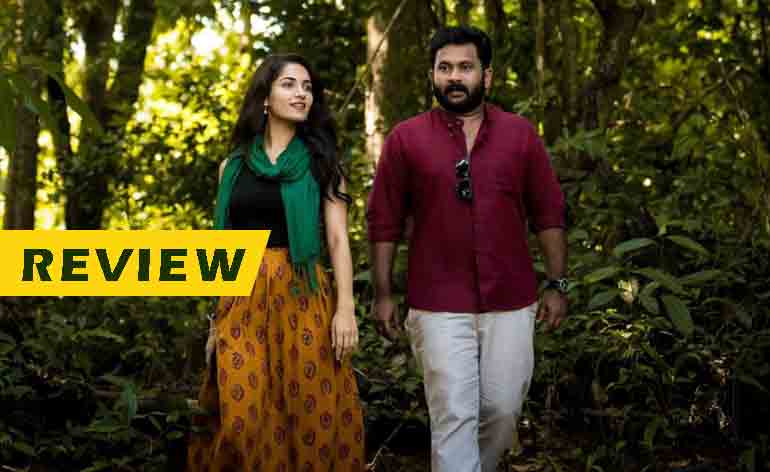For the first 20 minutes of the movie Kamala, you might get a feeling that director Ranjit Shankar has decided to change his game plan and has opted to go after grey and complex subjects. But very soon (somewhere near the introduction of the character played by Sunil Sukhada) the movie starts to sound ordinary. And that ordinary feel kind of stayed with the film throughout its runtime. Kamala is a very familiar story told in a very usual manner.
So Safar, an automobile and real estate broker is on his way to a forest area in the Kerala Tamilnadu border. He also had another plan of meeting a girl named Kamala who he had met during one deal in the past. But pretty soon after meeting her, every plan in Safar’s agenda got disturbed and the film Kamala is exploring the reason behind it and also who Kamala is.
There is a point in the second half were our main protagonist and his friends are trying to confirm the identity of the girl when another name pops up. The movie dedicates a considerable amount of time to this phase and the problem is that if you take a tiny bit of effort as a viewer, you will clearly know from where the so-called “suspense” element happened. And it was tough to accept that the very intelligent Safar, who towards the end did some of the smartest of things to protect the title protagonist, was unable to find this simple and open “mystery”. If any of you are wondering why I am hanging on to one particular scene, well the movie itself seems like an exaggeration of familiar twists and turns. When that back story involving the character played by Anoop Menon appears in the movie, it almost felt they completed every cliché in a mystery thriller.
Like I said, at the beginning of the movie Ranjith Sankar seems to have a plan to change his style in terms of presentation. There are more visual statements, a calmer background score, and an element of mystery. But very soon, his usual social commitment element comes into the picture and the movie suddenly shrinks. The frames become tighter, the music becomes high and the script falls into that template and every twist and back story they unveil feels like that “been there, seen that” kind of thing. Shehnad Jalal’s cinematography has its moments for sure, especially in the initial portions. Perhaps the promos of this movie are like the collection of best frames. There is only one song in the movie and it never really felt like a necessary one. The background score becomes way too loud at times. And when you witness a very silly and predictable twist along with those old school background scores, it feels less intense.
Aju Varghese is a sensible choice for the film as the movie doesn’t really need a Safar to narrate it. Kamala is the key here and Safar just becomes that option of the writer to tell that story. In terms of performance, I would say I liked Aju in Helen than this movie. Here it feels like he is making a desperate effort to be less eccentric and more subtle. Even though her lip sync is problematic, Ruhani Sharma as the title protagonist was a really nice casting. Her facial features have the kind of intensity that suits a character like Kamala. And her look in some scenes made me feel that she is more like an acting version of Tamannaah. Biju Sopanam and Sajin Cherukyil are the other actors here who play major characters and both are just about okay. Anoop Menon is there in a small yet important role performing in the only possible way he knows.
Kamala is a very familiar thriller script that has nothing novel to its credit. Aju Varghese appearing in the lead role was one of the specialties of this movie. But the predictability and the usual feel of the script made it a forgettable experience on the whole.
Aju Varghese appearing in the lead role was one of the specialties of this movie. But the predictability and the usual feel of the script made it a forgettable experience on the whole.
Green: Recommended Content
Orange: The In-Between Ones
Red: Not Recommended

